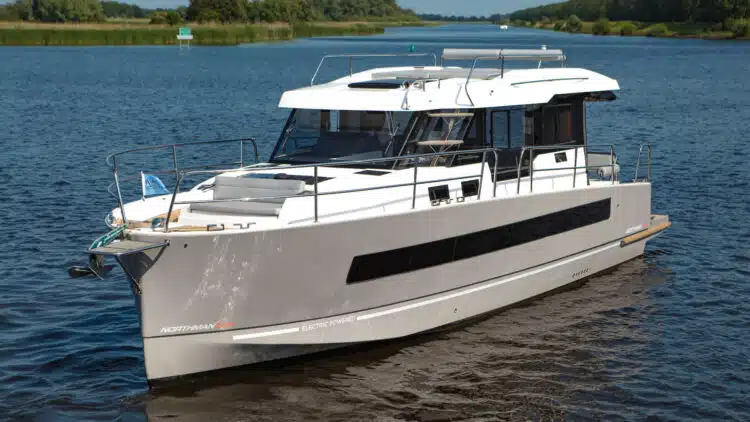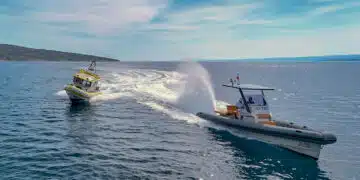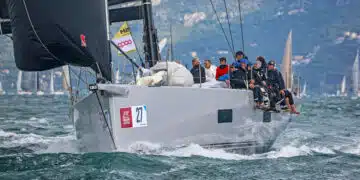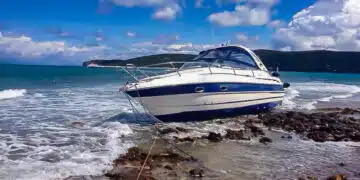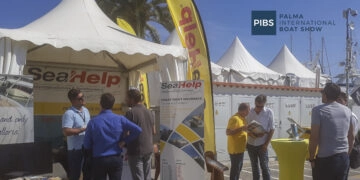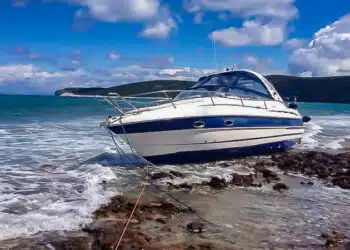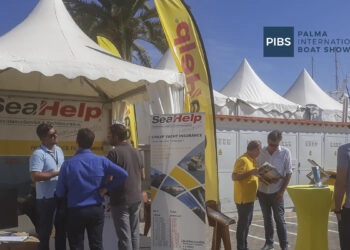Natural Yachts is the name of a small family business from the Dutch town of Marknesse near Vollenhove in the province of Flevoland, which charters and sells motor and sailing yachts up to 12 meters in length. The special feature: all boats run purely electrically, and: instead of conventional lithium-ion batteries, the innovative company installs accumulators based on lithium iron phosphate (LiFePO4 batteries). The advantages are obvious, says Natural Yachts managing director Jurjen Poorting in SeaHelp conversation.
The future on the water is electric, there seems to be no doubt about that anymore. The question is only when it will be so far (see also already our news on Mallorca, marine-hybrid-drive-systems and Electric Drive from eD-TEC).
One who has long been ahead of his time, anticipating electrification on the water for several years now, is Jurjen Poorting. With his companies Natural Yachts and Electric Ship Facilities, where his three children Josien, Sarah and Hylke are also involved, he offers various motor and sailing yachts for charter and for sale.

All of Natural Yachts’ yachts are electric, even the yard cars are electricians
“Our yachts all have one thing in common”, says Jurjen Poorting: they all would not use conventional diesel or gasoline-burning propulsion systems, but “all go electric”.
Even his shipyard cars are “Stromer”, and the roof of the large shipyard hall will soon be equipped with solar cells, which should supply a charging station for boats with energy. “Soon, perhaps as early as next year, we will be the world’s first “Natural Harbour” to operate completely electrically,” says Poorting.
But the tinkerer doesn’t leave it at that: in e-drives, lithium batteries have gained popularity in recent years because of their high energy density and performance; they are often used to replace conventional lead-acid batteries, he says, because they are lighter, more compact and have a longer life.
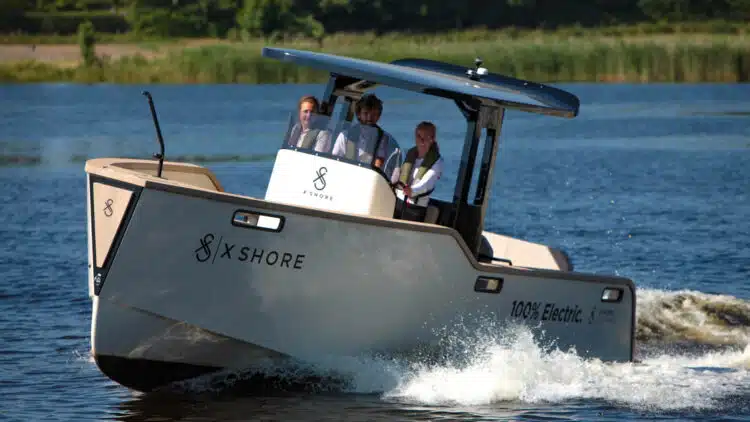
There are some potential hazards when using lithium-ion batteries
However, he said there are also some potential dangers in using lithium batteries aboard yachts, especially if they are not properly installed or maintained, Poorting says.
One of the biggest dangers of lithium batteries is the possibility of fires or explosions, he said. “Lithium batteries can catch fire or explode if overheated or damaged. This can be caused by overcharging, short circuits or mechanical damage”.
Choosing the correct lithium batteries is also critical to on-board safety, he said.
Another potential hazard of lithium batteries, he said, is the possibility of gas emissions. “Lithium batteries can emit gases when overcharged or overheated, which can be toxic or explosive”.
Natural Yachts consistently installs only lithium iron phosphate batteries on its yachts
To avoid these potential hazards, Jurjen Poorting only installs LiFePO4 batteries, rechargeable batteries based on lithium iron phosphate technology, also known as lithium iron or LFP batteries.
“LiFePO4 batteries can be safer than conventional normal lithium-ion batteries when high quality components are used,” Poorting is confident, because “they exhibit higher thermal stability and are less susceptible to overheating and thermal instability”. They are also less likely to cause fires or explosions, he says.
Another advantage of LiFePO4 batteries is their longevity, says Poorting: “LiFePO4 batteries, with the right configuration and a good battery management system, have a longer life than conventional lithium-ion batteries”. Up to 4,000 charging cycles can be achieved, he said.
LiFePO4 batteries are slightly more expensive, but can still be more cost-effective
However, the advantages are also countered by a number of disadvantages, including above all the price: “Although LiFePO4 batteries are generally more expensive than conventional lithium-ion batteries, they can be much more cost-effective in some applications due to their longer service life and higher performance when appropriately configured with range extenders and solar systems,” Poorting immediately puts this argument into perspective.
Another disadvantage: LiFePO4 batteries have a somewhat lower energy density than conventional lithium-ion batteries, which means that they can store less energy per unit weight. Finally, LiFePO4 batteries also have a lower maximum depth of discharge than conventional lithium-ion batteries, and they deliver slightly lower power at low temperatures.
Safety on board is paramount, says Jurjen Poorting
But for Jurjen Poorting, who comes from an old Fischer family, the advantages of LiFePO4 batteries clearly outweigh the disadvantages. Especially when it comes to safety on board, the boat specialist does not want to compromise and eliminate hazards completely, if possible.
We do the test – and are surprised: after a trip with a Northman 1200, which is equipped with lithium iron phosphate batteries, including cooking and the use of the heating on board, the Engiespeicher empties only minimally. Just plug it in and the solar panel on the roof of the motor yacht does the rest.
It’s a good feeling to be able to travel safely, quietly and powerfully with this boat – even over long distances. One of his charter boats will be equipped with a fuel cell drive in the summer, says Jurien Poorting. SeaHelp will report on this here in the September issue.
Info Northman 1200 Electric: CE category B, length: 12.26 m, beam: 3.50 m, draft: 0.80 m. 6 berths divided into 3 double cabins, 2 x WC/shower, bow and stern thruster, heating, induction stove, solar panels. All energy systems of the boat are fully electric. The test yacht was equipped with a battery pack with a capacity of 84 kWh (LiFePO4). At a speed of just under 5 knots (9 km/h), our test vessel had a range of 13 hours or 115 km. More information: naturalyachts.com.
Good to know: SeaHelp is also represented in the Netherlands with currently four bases; and the task forces are trained in the use of electrically powered boats. The bases Makkum, Enkhuizen, Edam and Muiderzand are operated jointly with the Dutch SeaHelp partner Reddingsdienst. Helpline phone number for the Netherlands: 0043 50 43 112.


